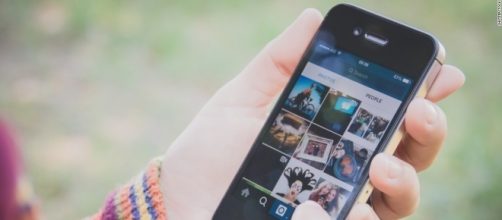A new study has rated Instagram as the worst form of social media for a young individual’s mental health. The study carried out by the Royal Society for Public Health (RSPH) in the U.K has come to this conclusion and also rated Snapchat as the second-worst social media platform. The study further adds that individuals who are on social media for more than two hours a day are more likely to suffer from poor mental health. These users can also exhibit signs and symptoms of depression and anxiety. Exposure to endless pictures of fun outings and luxury lifestyles can promote a "compare and despair" attitude among users assert the researchers.
Social media mental health impact study
The conclusions were drawn from observation and evaluation of previous research documenting the effects of social media on mental health, along with RSPH’s own UK-wide survey involving the participation of 1,500 individuals between the ages of 14 to 24. The survey was conducted to understand how the respondents felt about different social network mediums such as Facebook, Instagram, Snapchat, YouTube, and Twitter and how these mediums affect the mental health of these individuals both negatively and positively. The survey also asked the respondents to document their feelings of anxiety, sense of identity, perception of body image, and many more factors.
Instagram has worst effects on mental and physical health
Out of all the social media platforms, only YouTube gathered a net-positive effect amongst the survey respondents. Instagram was rated to have the most negative effects on mental and physical health, while Snapchat was rated as the second-most negative social media platform. CNN quoted one of the researchers, who said that girls often compare their natural body shape with the unrealistic images posted on Instagram and often suffer the negative effects of body image perception.
How social media affects people
Previous studies found that social media feeds not only created unrealistic expectations but also leads to FOMO or Fear Of Missing Out.
These can, in turn, lead to low self-esteem and fuel mental issues such as anxiety and depression. The mental health further degrades with constant cyberbullying and lack of sleep, which are also some of the various negative effects of extensive social media usage.
On a positive note, the researchers of the new study found that 70 percent of the survey respondents received emotional support on social media during tough times and were also given a platform for positive self-expression. Some of the respondents were also able to create and maintain new and old relationships online.
Researchers recommend a more positive approach
RSPH thinks that the root of the problem is that people often forget that what they are looking at is not always the reality.
The organization recommends fashions brands, celebrities, lifestyle enthusiasts, and others to consider disclosing when the uploaded photos have been manipulated. It also suggests the social media platforms provide users with a pop-up warning alerting the users if they have spent excessive time online.


